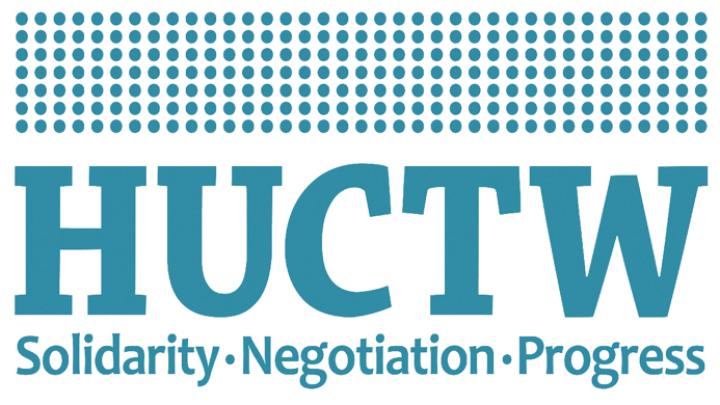After a long negotiation, Harvard and its largest union, the 4,600-member Harvard Union of Clerical and Technical Workers (HUCTW), have reached agreement on a multiyear contract; they had operated without one since the end of June 2012. The new contract provides the typical union member with a raise of 3.4 percent during the first year, retroactive to July 1, 2012, and two more annual pay increases at the same rate to be delivered on August 15, 2013, and October 1, 2014. The agreement remains tentative until it is ratified by the union’s membership. Voting is scheduled to take place on Tuesday, April 2.
In addition to wage increases, the agreement provides an innovative “time off or money” provision that, during this calendar year and next, gives union members the option of taking either three additional personal days or a lump-sum payment for each of those days equal to 75 percent of a day’s pay. In a letter to its members, the union noted that this would allow employees “with varied working life circumstances” to “choose what they need most.”
The more difficult issues surrounding the sharing of costs for employee health plans will be referred to a new HUCTW-Harvard Health Care Negotiating Group. In the meantime, the terms of the current health plan will remain in effect.
Harvard’s September 2012 contract offer to HUCTW had included a 2.8 percent increase in the first year, 2.5 percent in the second year, and 2 percent in the third year. And seven other unions at Harvard agreed recently to contracts that included wage increases between 2 and 3 percent, while administrative and professional employees received an average 2.65 percent increase to their base wage. But the union argued that in the past, salary increases had represented real gains—approximately 1.5 percent during the period from 2002 to 2009—beyond the rate of inflation. And the union’s letter to its membership emphasized this point, noting that the tentative agreement “will provide HUCTW members with solid economic progress and wage growth beyond Boston-area inflation.”
“We are very pleased to have reached an agreement that is fair for the University and the members of the HUCTW,” said Marilyn Hausammann, Harvard’s vice president for human resources, in a statement released by the University. “We value and recognize the important role that HUCTW members play every day at Harvard, and we look forward to moving ahead together with the work of the University.”
HUCTW director Bill Jaeger, in the same official statement, called the tentative agreement a “strong outcome,” noting that “It’s important to build a good foundation, because there are more tough issues ahead.”








